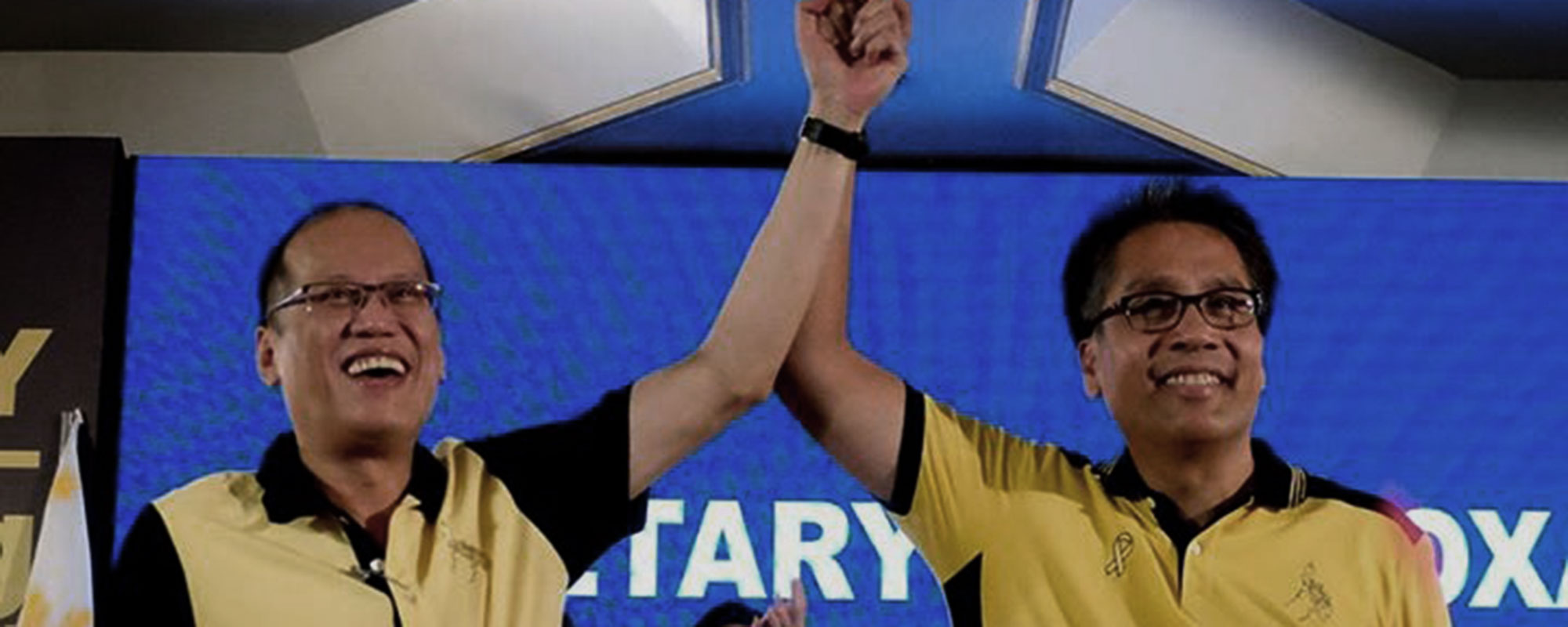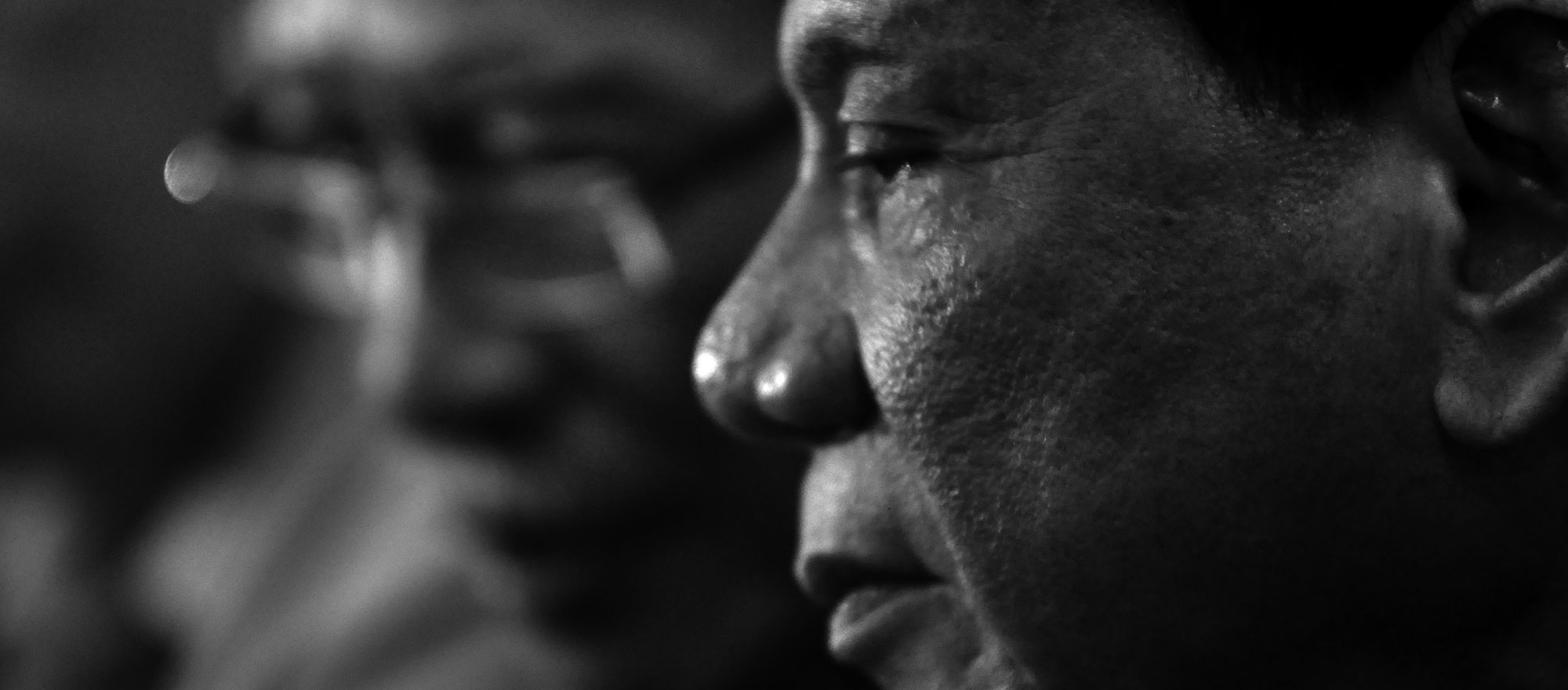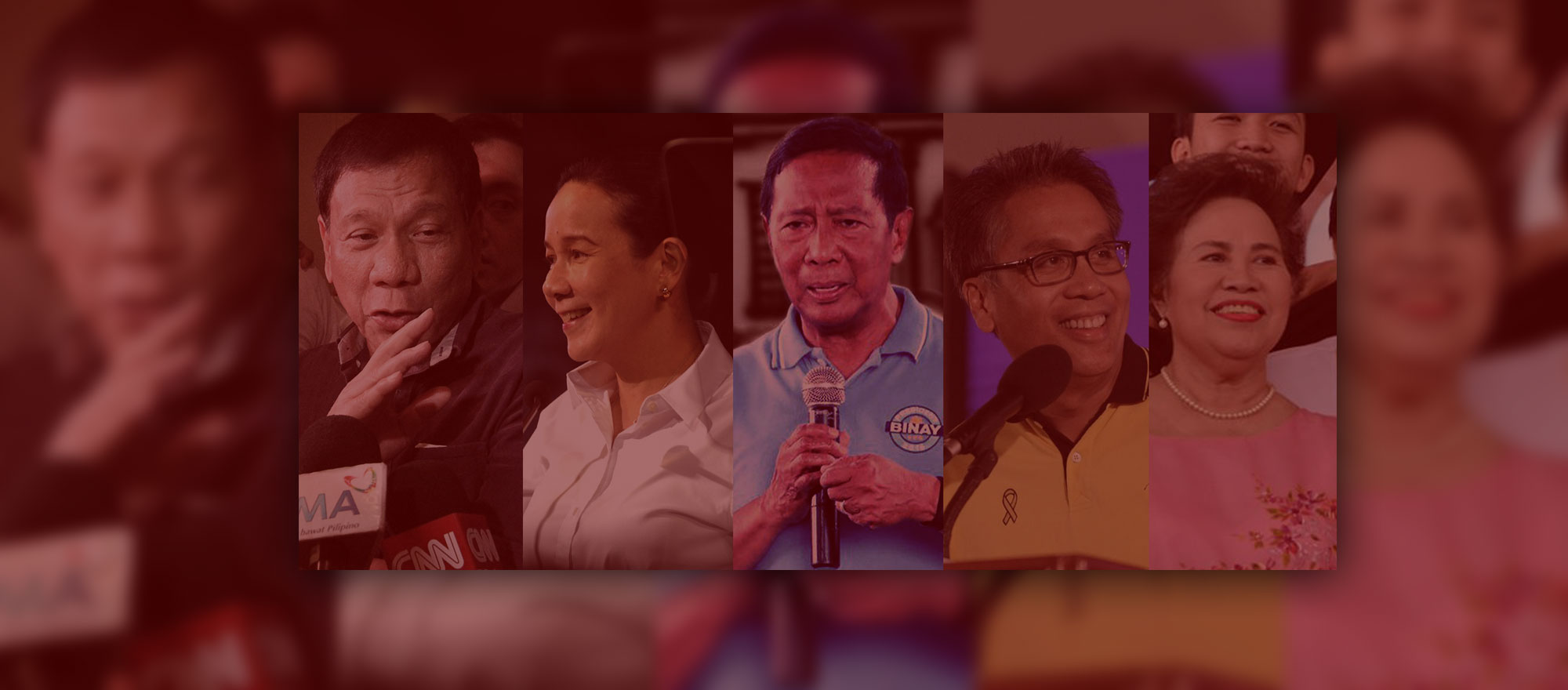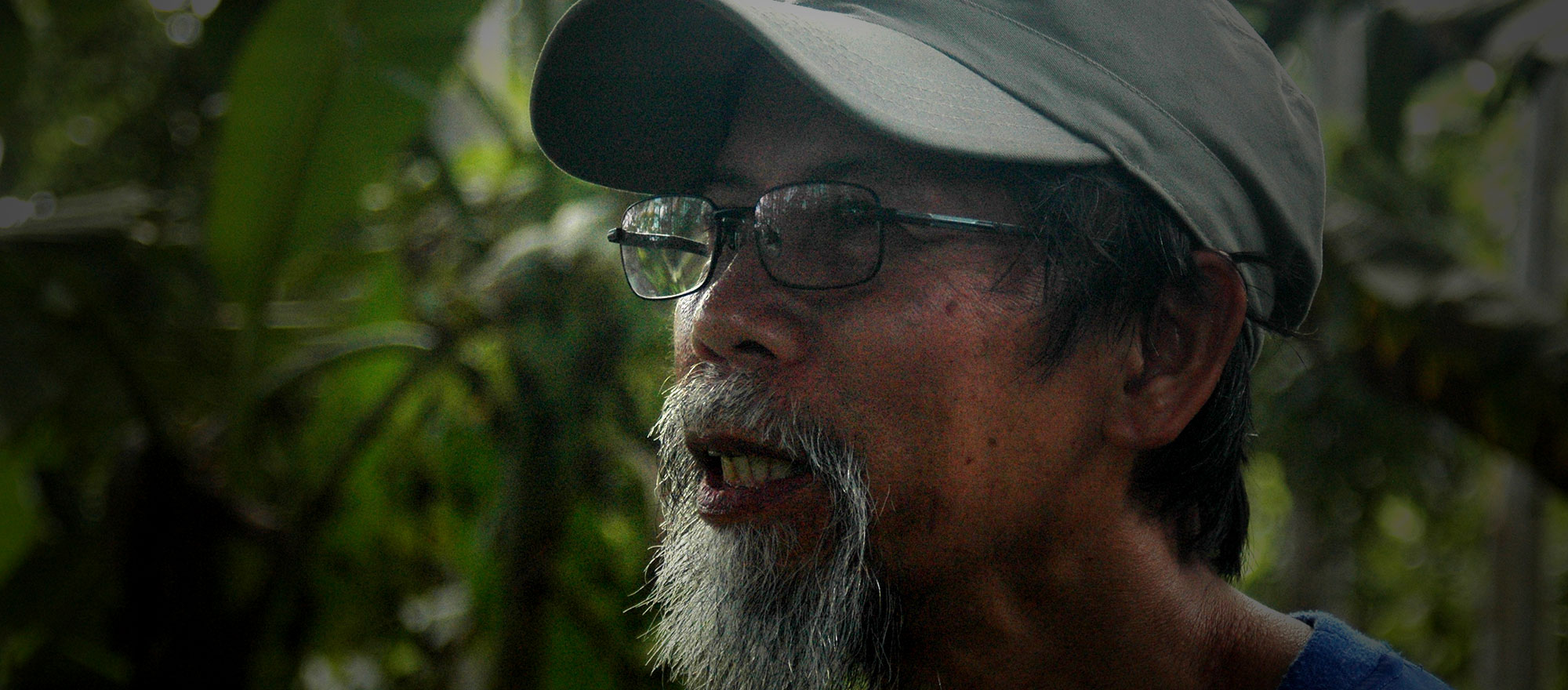On the political opportunism of Mar Roxas
Political activist and writer Arnold Padilla on how quickly Manuel Roxas III changed sides from being anti-VAT on oil to being its defender under the Aquino regime.


(EDITOR’S NOTE: For many, President Aquino’s endorsement of Manuel “Mar” Roxas III as presidential candidate for the 2016 elections was a foregone conclusion. After all, Roxas has been hard at work projecting himself as next-in-line even during the first days of the Aquino administration. Aquino himself consciously placed Roxas in prominent and influential positions in his cabinet. This provoked some internal struggles within the ruling clique. In the mean time, Roxas — despite [maybe because of] being the favored one all through the Aquino presidency — was himself embroiled in one controversy after another.
As Department of Transportation and Communication secretary, he defended Public-Private Partnerships, and led the “waterways” demolition of urban poor communities, among others. As Department of Interior and Local Government secretary, in November 2013 he presided over what was arguably Aquino’s greatest failing: the [lack of] government response to the Yolanda/Haiyan tragedy. Roxas himself was caught on video saying that the Aquino-Romualdez feud had something to do with the lack of national government response to the crisis in Tacloban City. He was also seen on international media fumbling on his answers to questions on why the national government failed to adequately prepare and respond to the crisis in Eastern Visayas.
In 2012, political writer and activist Arnold Padilla wrote this piece about Roxas’ political opportunism, particulary how he changed sides on the issue of Value-Addex Tax (VAT) on oil as he became part of the Aquino administration. The article, which was originally titled “Mar Roxas: From Mr. Palengke to Mr. Perwisyo“, first came out in his blogsite.)
After the successful nationwide protest against high oil prices (in 2012), Malacañang reaffirmed its position not to lift the 12% value-added tax (VAT) on oil. One of the administration officials who immediately articulated the Palace stand was Mar Roxas, secretary of the Department of Transportation and Communications (DOTC). Defending the oil VAT, Roxas said that revenues generated by the controversial tax “are being used to render services to the public”. “It’s easy to say ‘stop collecting taxes’ but this would mean that a particular government service will be affected,” Roxas argued.
![]() It’s amazing how fast Roxas changed his mind about the oil VAT. To those who have a short memory, let me refresh your recollection by quoting portions of Roxas’s column Mr. Palengke that the tabloid Abante used to publish. The opinion piece, entitled “$100 kada bariles”, was published by the popular daily in its Jan. 8, 2008 issue. It was Roxas’s reaction to the then escalating prices of oil that for the first time breached the $100-a barrel mark.
It’s amazing how fast Roxas changed his mind about the oil VAT. To those who have a short memory, let me refresh your recollection by quoting portions of Roxas’s column Mr. Palengke that the tabloid Abante used to publish. The opinion piece, entitled “$100 kada bariles”, was published by the popular daily in its Jan. 8, 2008 issue. It was Roxas’s reaction to the then escalating prices of oil that for the first time breached the $100-a barrel mark.
“Hindi na po normal ang sitwasyon natin ngayon. Alam nating ang langis ay talagang nakakaapekto sa lahat ng aspeto ng pamumuhay: transportasyon, pagkain, kuryente, manufacturing ng mga produkto, at marami pang iba. Kaya sa bawat pagtaas ng presyo ng langis, sumusunod naman ang presyo ng iba pang produkto at serbisyo. Nanganganib talaga ang bulsa ni Juan dela Cruz. Maikli na ang kanyang pisi, lalo pa itong iikli.
Naaalala ko, noong kakatapos lang na ipasa ang Expanded Value-Added Tax Law noong 2005, sumipa ang presyo ng krudo mula $36 kada bariles hanggang $56, at natakot tayo noon na sumipa pa ito sa $75 kada bariles.
“Ngayon, $100 na, ang layo na sa dating mga presyo at kailangan na talaga ang parehong mga agaran at pangmatagalang solusyon sa umaalagwang presyo ng langis. Kailangan na ng political will. Walang lugar para sa mga “token-ism,” o mga pakitang tao. Kung talagang ginugusto ng pamahalaan na makatulong sa ating mga kababayan, isang malinaw at kongkretong hakbang na maisasagawa ay ang agarang pagsuspinde sa EVAT sa langis at mga produktong petrolyo.
“Agarang ginhawa sa halagang P4 kada litro ng diesel o P60 kada tangke ng LPG ang maidudulot nito. Kung gusto talaga ng pamahalaan na mapaginhawa ang buhay ng ating mga kababayan, sana’y suportahan nila ang ating panukala.
“Hanggang ngayon, tila ba hindi pa rin nagbabagong-loob ang administrasyon dito. Nakakalungkot, dahil P20-30 bilyon lamang ang mawawala sa pamahalaan sa anim na buwang suspensiyon ng EVAT sa langis, kumpara sa kalakhang P1 trilyong revenues nito. At sabihin nang sa mga social services daw, tulad ng edukasyon at kalusugan napupunta ang pondong ito, nararamdaman ba ninyo ito?
“Ang nakakalungkot pa, malaking halaga ng buwis na dapat makolekta ay nawawala dahil sa katiwalian at iba pang mga leakages. Noong 2006 nga, ayon sa isang pag-aaral ng DOF mismo, may P107 bilyon ang hindi nakolekta dahil sa mga leakage. Ang lalong nakakalungkot, ang kalakhan ng mga leakage ay naroon sa mga buwis na hindi nakokolekta sa mga malalaking tao. Hindi nakolekta ang P81.96 bilyong potensiyal na kita mula sa corporate income tax. Samantala, ang tinatawag na “tax gap rate” sa income tax ng mga negosyante at propesyonal ay nananatiling mataas, sa 40%, kumpara sa tax gap rate ng income tax ng mga manggagawa, na nasa 10% lamang.”
“Pera ni Juan dela Cruz ito, hindi ito pera ng gobyerno. Hangga’t hindi natin nakikita na mahusay ang paggastos ng gobyerno sa pera ng taumbayan, mabuting ibalik muna ito sa kanila upang maibsan ang kanilang kahirapan. Ipinasa noon ang EVAT dahil nanganganib na humina ang ekonomiya dahil sa sinasabi nilang “fiscal crisis”. Ngayon naman, nanganganib na bumagsak ang ekonomiya kapag naipit nang naipit ang pagkonsumo ng ating mga kababayan. Ibang sakit ang ating nararanasan ngayon, hindi puwedeng parehong gamot pa rin ang ating inumin.” (All emphases mine)
Roxas used to think that removing the VAT on oil, even if temporarily as he proposed then, will translate to immediate benefits for the poor. In his 2008 column, he said it’s P4 per liter for diesel and P60 per 11-kilogram (kg) tank for liquefied petroleum gas (LPG). Today, the immediate benefits are even bigger – for diesel, it’s almost P6 per liter and for LPG, as much as P110. “Government believes it should keep on collecting EVAT on oil and be the sole arbiter on how these revenues should be reallocated. I say, let’s give our people a break… Give the people instantaneous relief from high prices and meager incomes,” said then Senator Roxas in a separate Dec. 20, 2007 press statement. Then, he thought that the people deserve a break. But now he does not think so?
Indeed, the points Roxas had raised against the continued collection of VAT amid soaring oil prices remain as valid as ever. His arguments, in fact, could very well answer the Aquino administration’s excuses to justify the VAT on oil today. For instance, while revenues have increased because of the oil VAT, social services continued to be marginalized in terms of government spending. Most of the revenues are being siphoned off by debt servicing. When Roxas was raising the issue of oil VAT in 2008, social services comprised less than 21% of total public expenditures while the total debt burden (interest payments and principal amortization) accounted for more than 34 percent. In 2011, preliminary data show that social services are still marginalized at less than 23% of public expenditures while the debt burden continued to hold the lion’s share with more than 31 percent. As Roxas said, “Pera ni Juan dela Cruz ito, hindi ito pera ng gobyerno”. Why should we allow the Aquino administration to be the sole arbiter on how these resources should be used?

Roxas’s point on the tax leakage, meanwhile, remains a compelling argument against the VAT on oil. A 2010 study by the National Economic and Development Authority (NEDA) estimated that individual tax leakage could reach at least P35.69 billion a year from 2011 to 2016. From 2001 to 2005, the individual tax leakage was pegged at P35.74 billion a year, according to a 2006 study by the National Tax Research Commission (NTRC). Despite the hype of Daang Matuwid, the fact remains that bureaucratic corruption, inefficiency, and wastage continue to deprive government of potential revenues. Alas, like the Arroyo administration, the Aquino government is over-relying on the regressive and burdensome VAT instead of finding other ways to raise revenues such as addressing the perennial tax leakage.
As mentioned, Roxas is now dismissing the very same arguments he once espoused against the oil VAT. For him, protest actions against the VAT and deregulation – issues he used to consider as legitimate concerns that government must address – are “perwisyo” or nuisance. Of course, only the naïve will be surprised by such turnaround of a traditional politician. Roxas obviously just rode on the very popular anti-VAT sentiment when he was still eyeing the presidency. (He eventually gave way to Aquino and ran for the vice presidency but lost to Makati Mayor Jejomar Binay in the 2010 elections.) But now that he is part of the incumbent administration as a Cabinet official, the oil VAT has suddenly become indispensable.
Thus, from the consumer advocate Mr. Palengke, Roxas has now transformed into the VAT apologist Mr. Perwisyo.
Finally, let me share another quotable quote:
“Napakahalaga ang VAT… Ito ang sagot sa mga problemang namana natin… Kung aalisin ang VAT, hihina ang kumpyansa ng negosyo, lalong tataas ang interes, lalong bababa ang piso, lalong mamahal ang bilihin… Kapag ibinasura ang VAT… ang mas makikinabang ay ang mga may kaya…”
That’s not President Aquino or one of Malacañang’s mouthpieces speaking, although the tune is very familiar to the one being chorused by administration officials. It was Mrs. Gloria Arroyo in her speech during her State of the Nation Address (SONA) on Jul. 28, 2008. Arroyo was responding to Roxas and many others who were demanding that the oil VAT be removed or reduced and that pump prices, which then were reaching historic highs, be controlled.
Tapos na ang pamumunong manhid sa daing ng taumbayan? Roxas’s 180-degree turn on the issue of oil VAT is yet another proof that the supposed change the Aquino administration has been peddling is nothing but an illusion.




